
From 15 to 19 September 2025, as part of the ERASMUS+ Project No. 101128856 titled “3D concepts for fashion education in Ukraine” / 3D4U, a team from Khmelnytskyi National University (KhNU)—comprising Tetiana Ivanishena, Dean of the Faculty of Technology and Design, and academic staff from the Department of Fashion Industry in Light Industry: Oksana Mykhailovska, Halyna Lobanova, Anna Seleznyova, and Olena Andrieieva—participated in seminars aimed at improving the qualifications of Ukrainian experts in textile education. For this purpose, they visited Dresden University of Technology (TUD, Germany), a project partner specialising in research and development in digital technologies. They participated in a five-day training course that covered two 3D concept modules: “3D Printing for Textiles and Fashion” and “Scanning and 3D Human Modelling.”
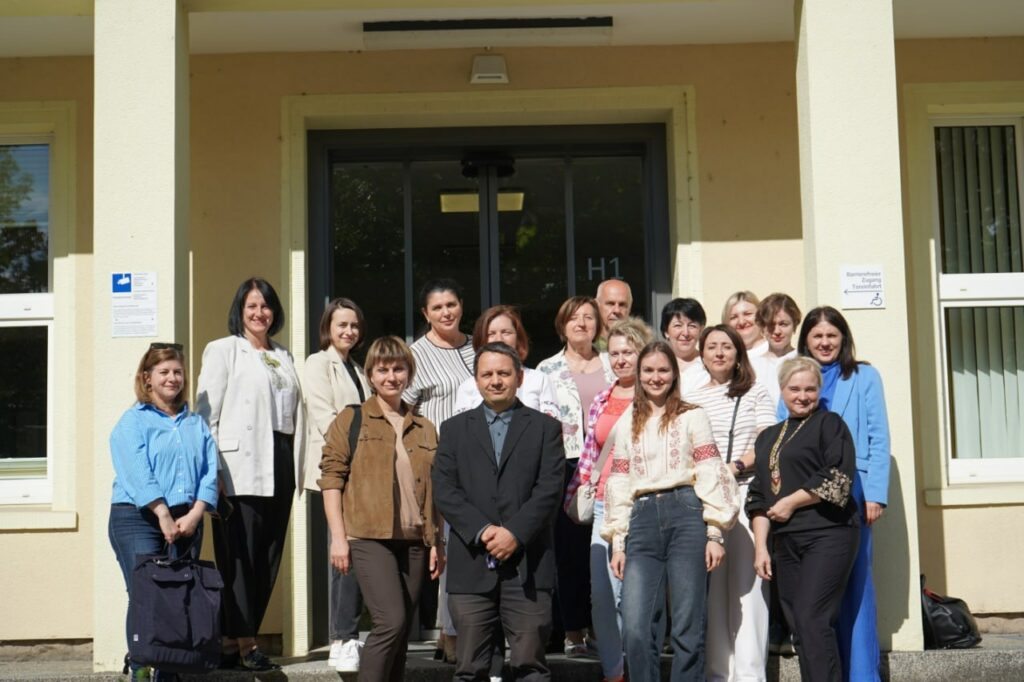
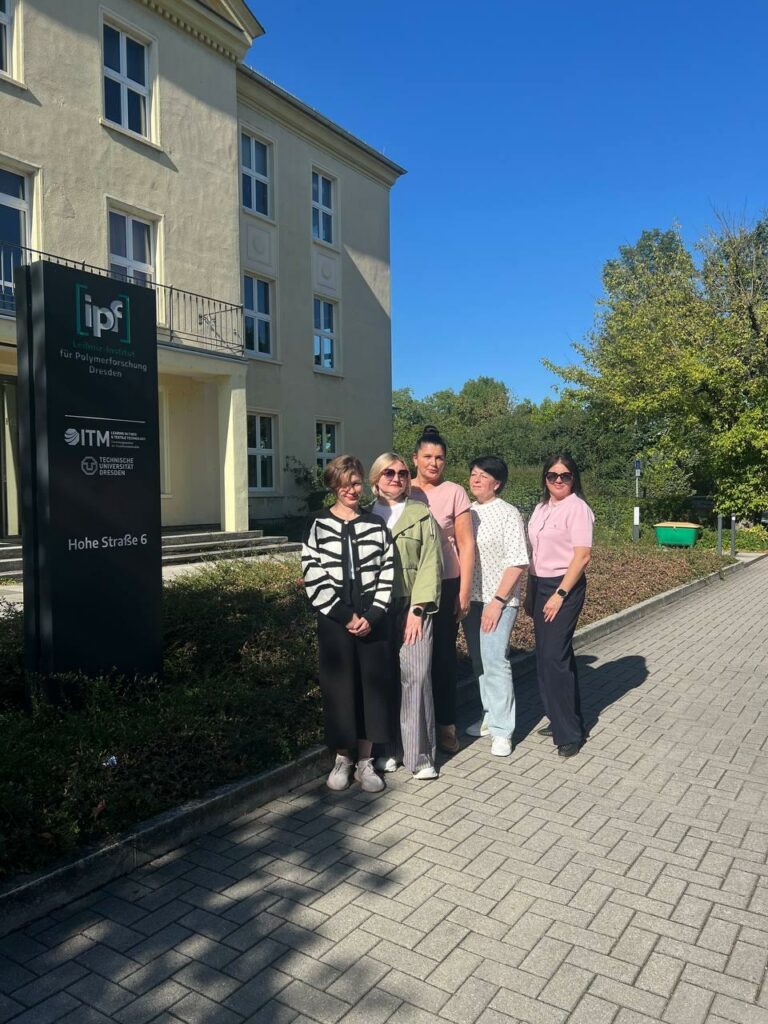
The TUD research group—which included Professor Dr Ing. Yordan Kyosev (Head of the Department of Development and Manufacture of Textile Products at the Institute of Textile Machinery and High-Performance Material Technology), Dr Ing. Hassan Said, Professor Dr Ing. Olena Kyzymchuk, Dr Ing. Nataliia Sadretdinova, and Dipl.-Ing. Felix Kunzelmann, along with Dr. Fatma Baytar from Cornell University (USA)—shared their extensive experience and practical knowledge concerning the use of 3D technologies in the textile and fashion fields.
Professor Yordan Kyosev delivered the lecture "4D Move Introduction and scanning," while Dr Fatma Baytar presented on "3D Body Scanning" to the training participants. The speakers focused on the capabilities and necessity of multi-dimensional scanning of the human body, both statically and dynamically, for the fashion industry. The practical part of the training enabled participants to master modern methods of 4D and 3D human body scanning, as well as the processing of the resulting digital models.
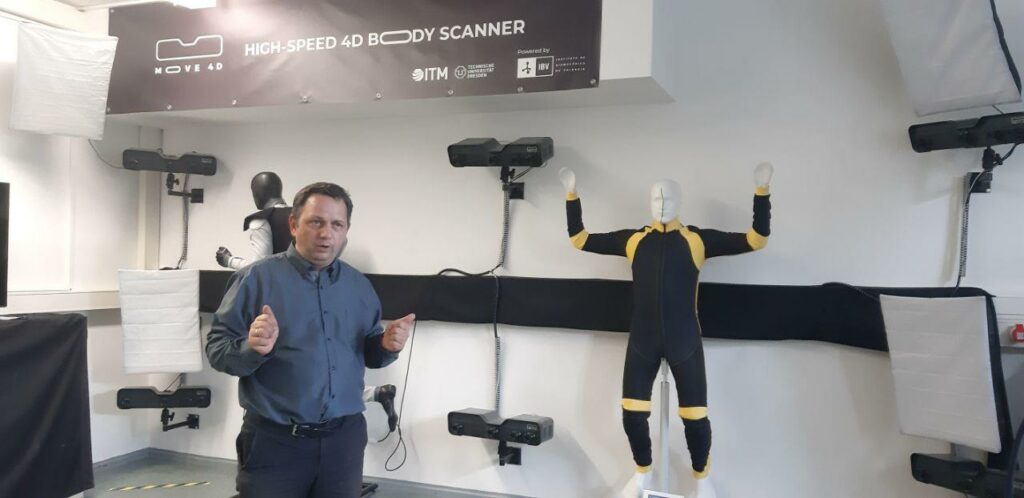
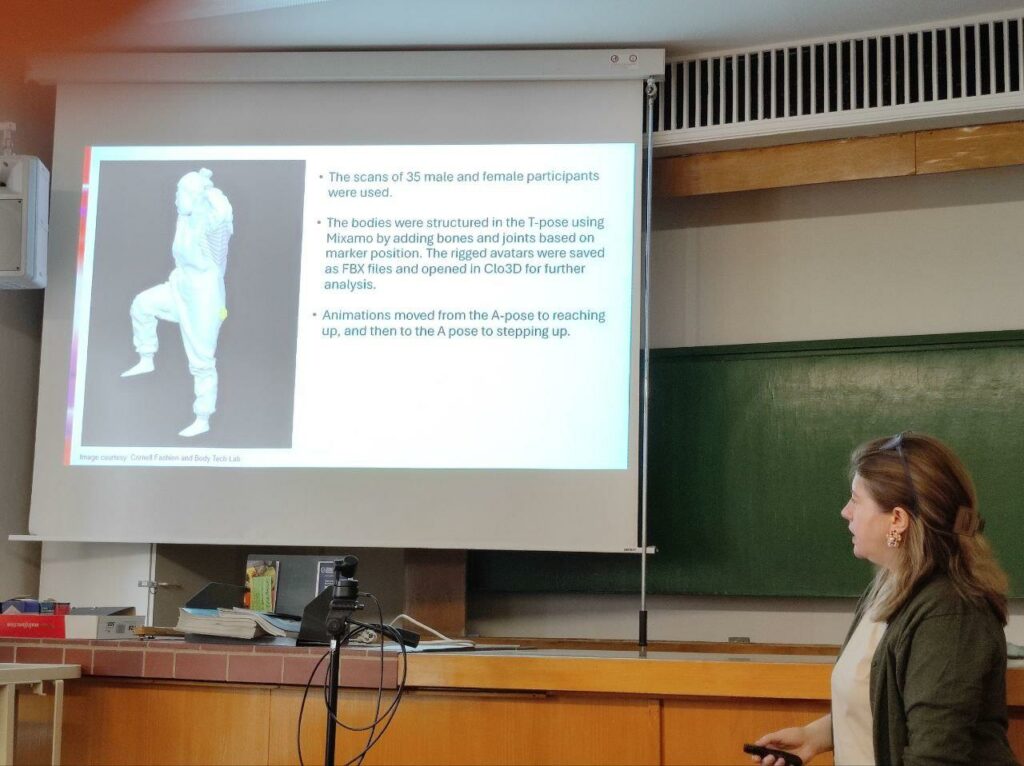
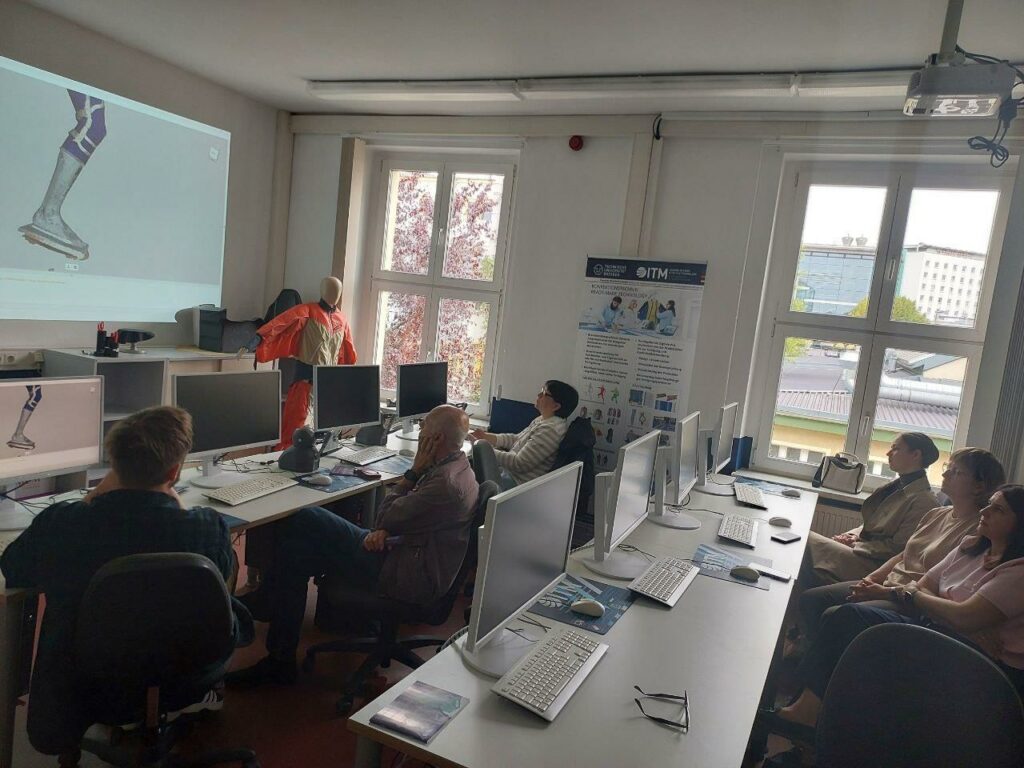
Professor Yordan Kyosev also demonstrated the capabilities of accessible software to the training participants: Blender (for creating 3D graphics and animation). ParaView (for analysing and visualising arrays of technical databases). MeshLab (for processing, analysing, and editing three-dimensional mesh models), including 3D scans of the human body.
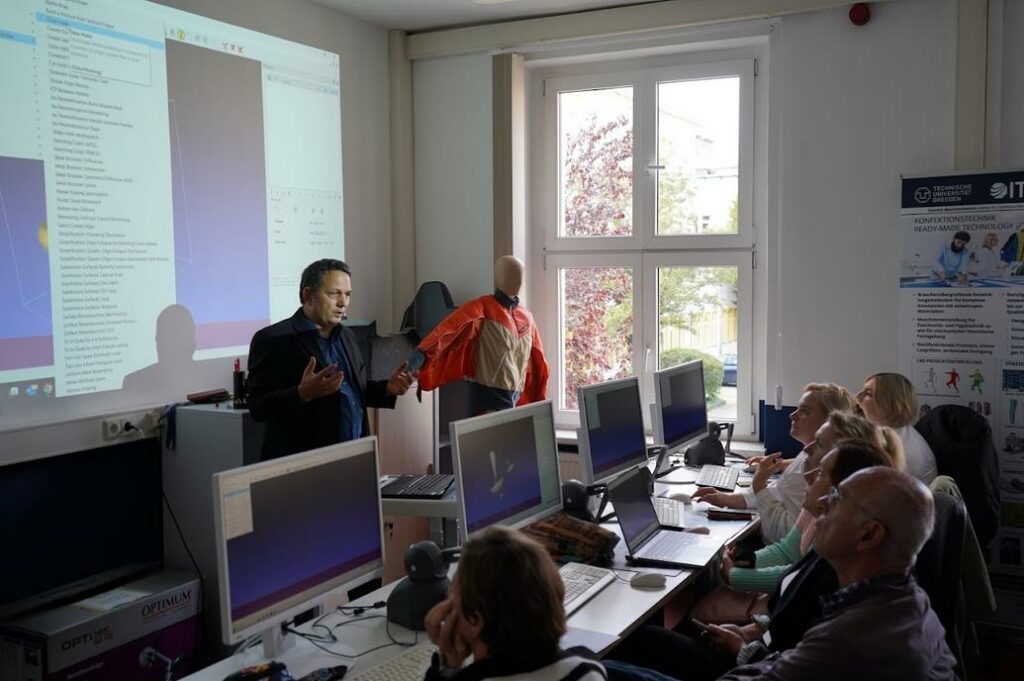
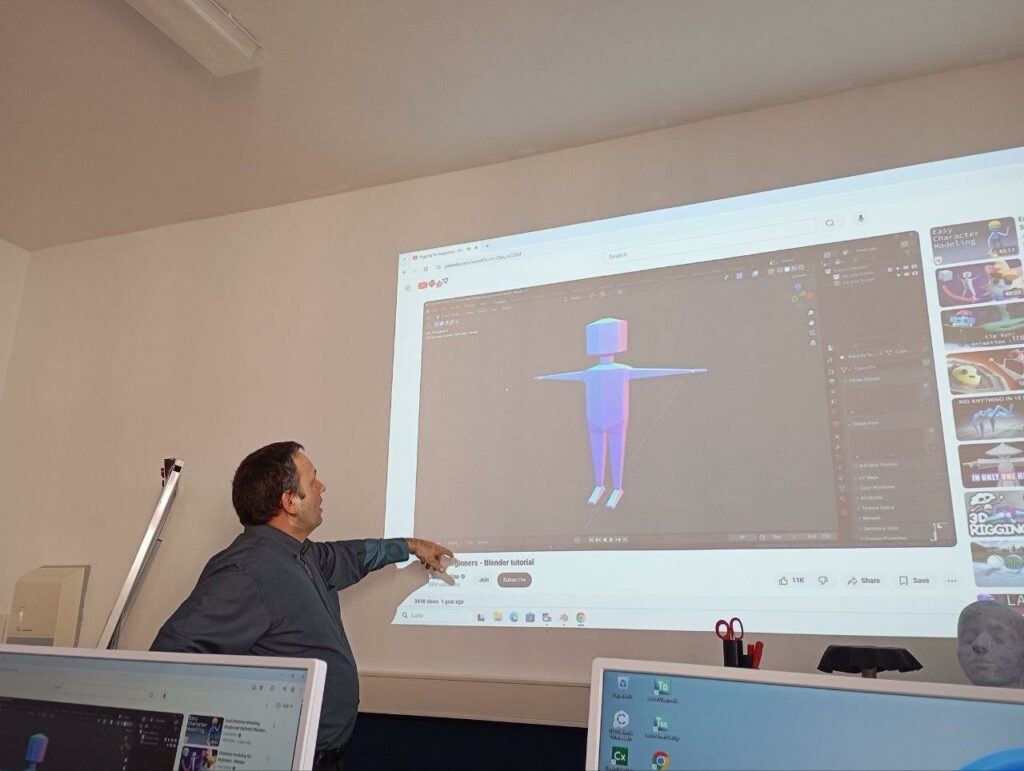
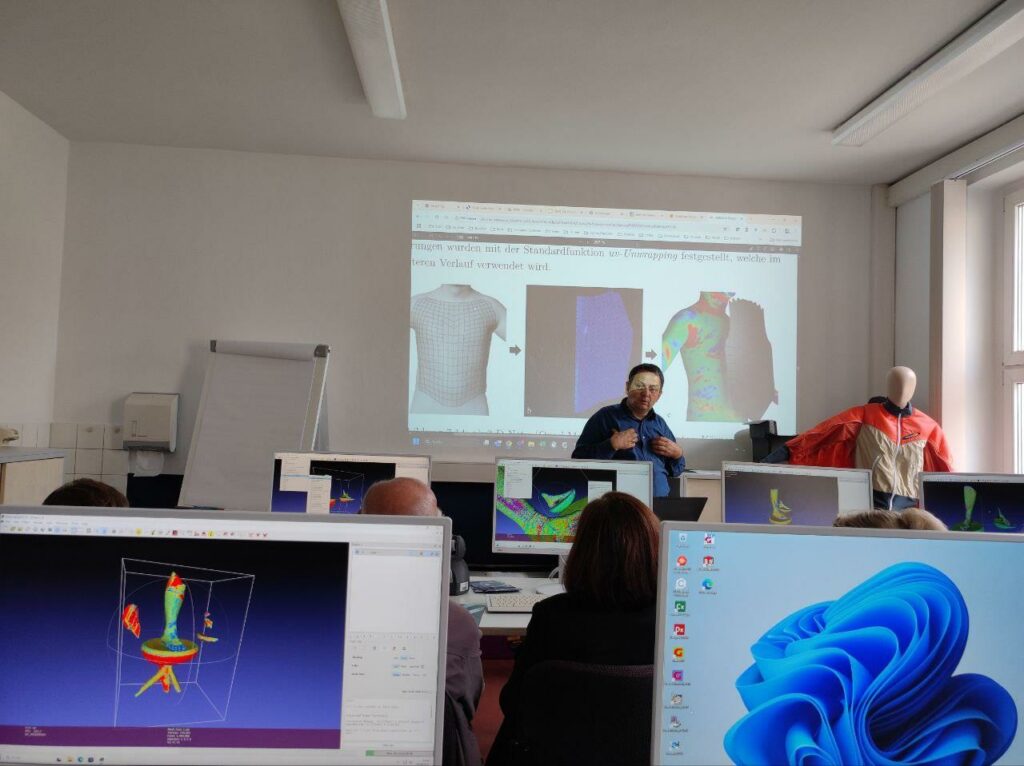
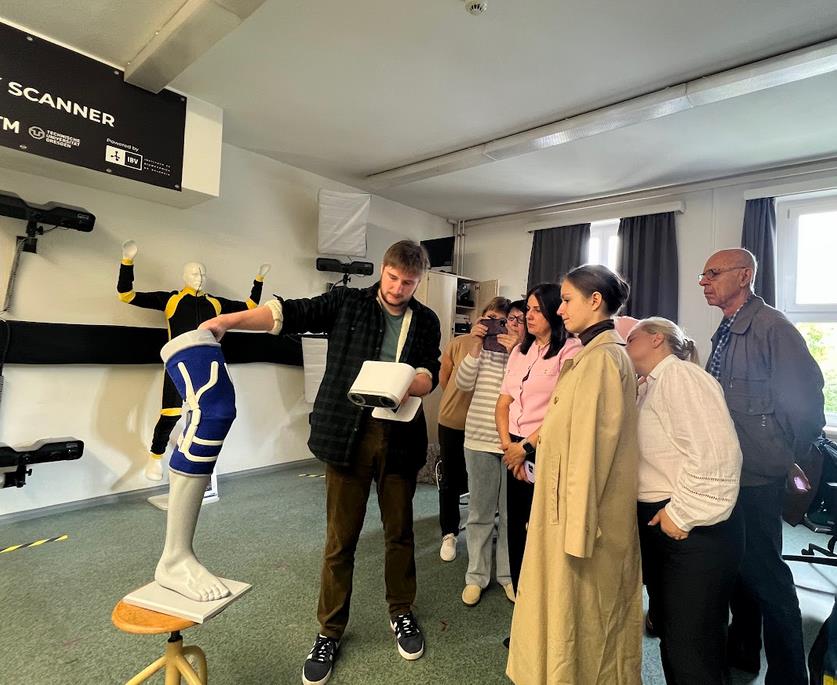
Professor Olena Kyzymchuk and Associate Professor Nataliia Sadretdinova gave practical presentations on the capabilities of software used to process the results of multi-dimensional human body scanning. They demonstrated examples of practical applications for conducting scientific research and using digital models to develop fashion industry products.
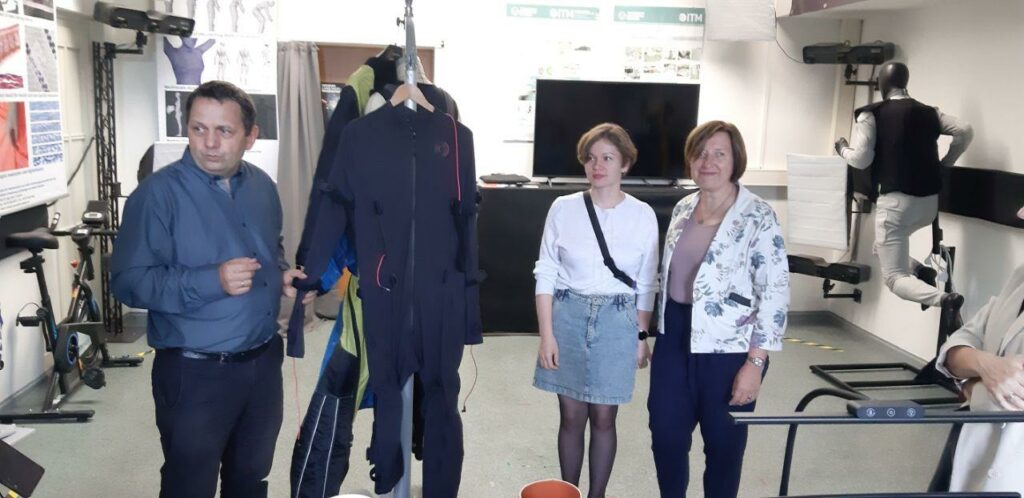
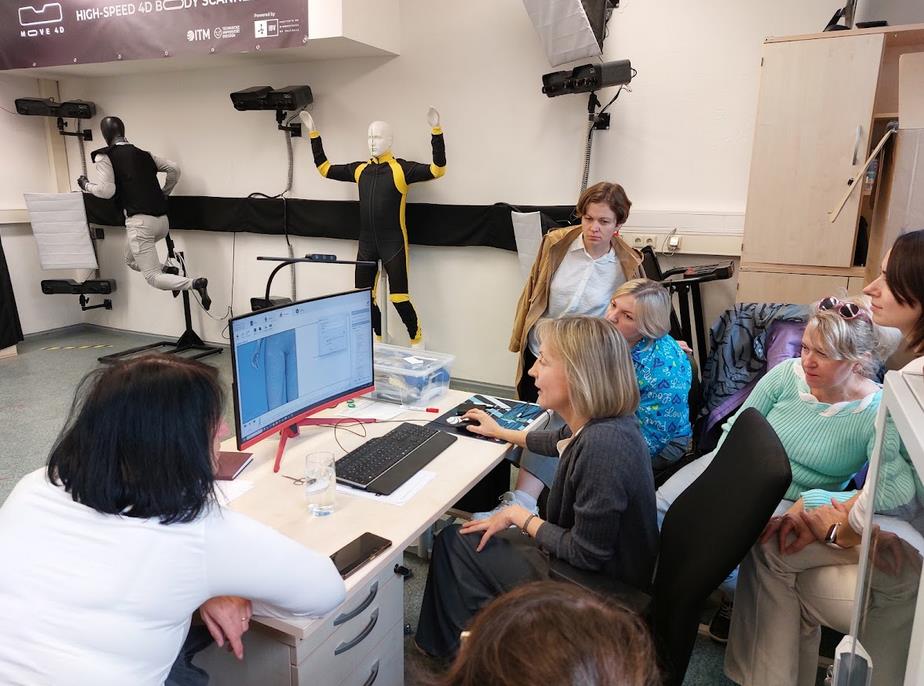
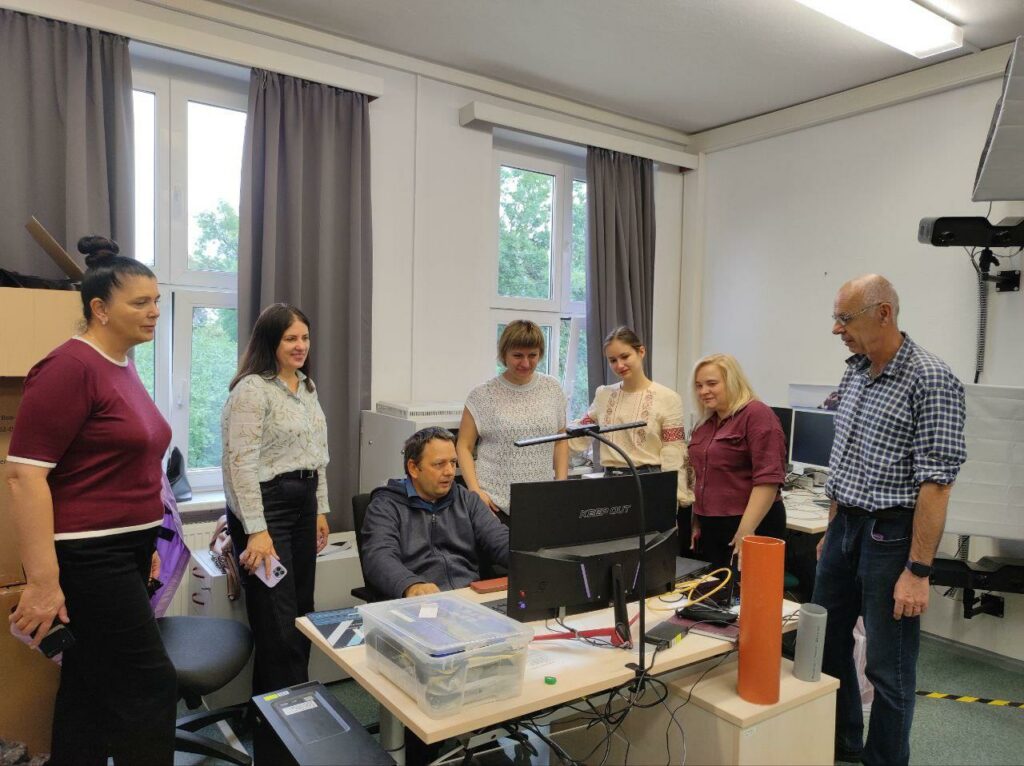
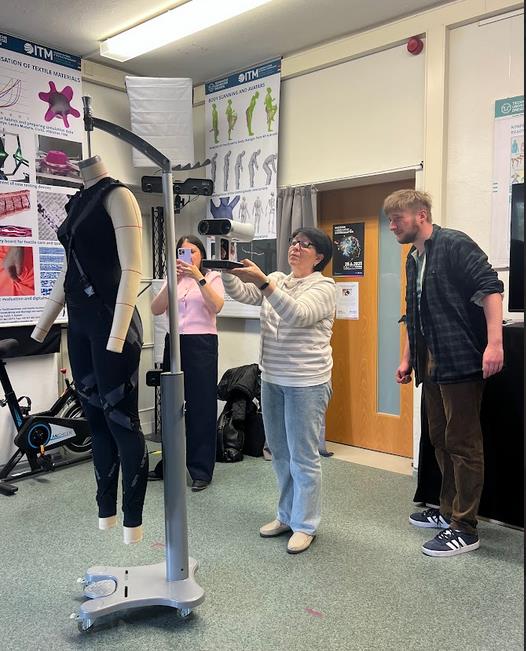
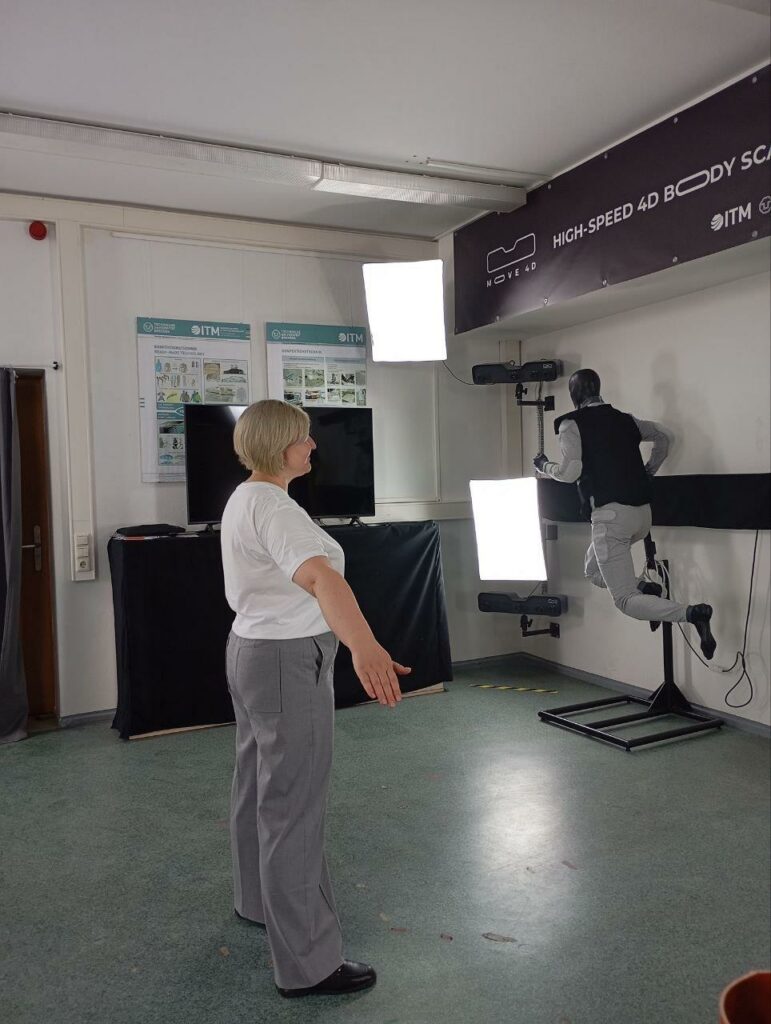
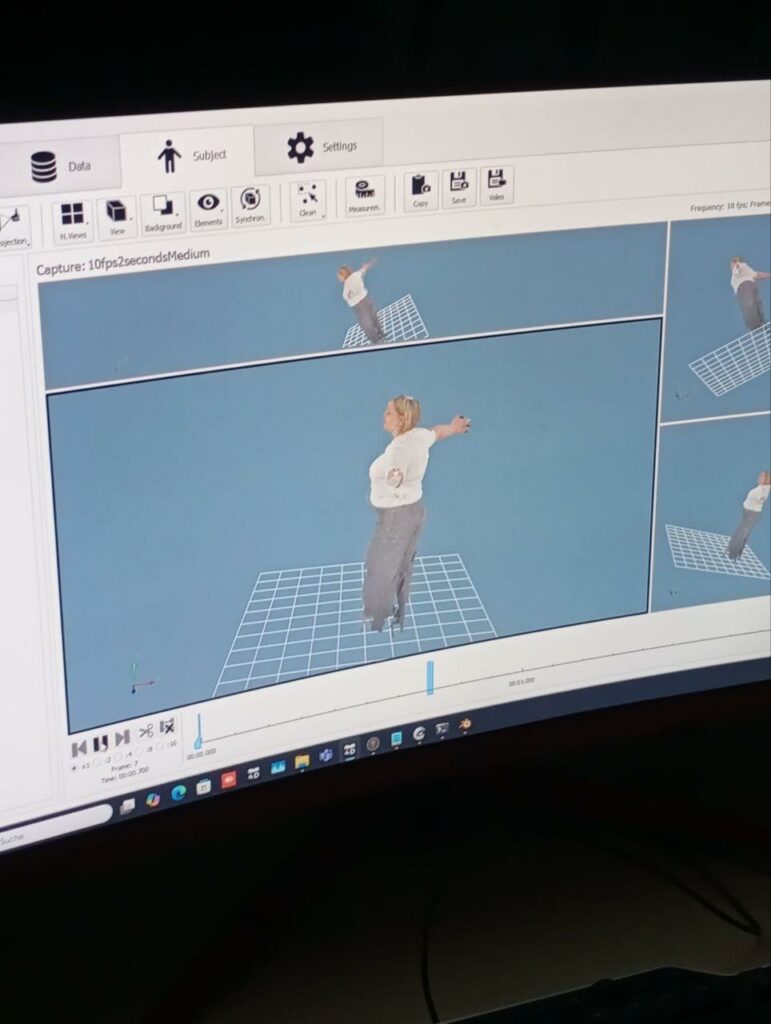
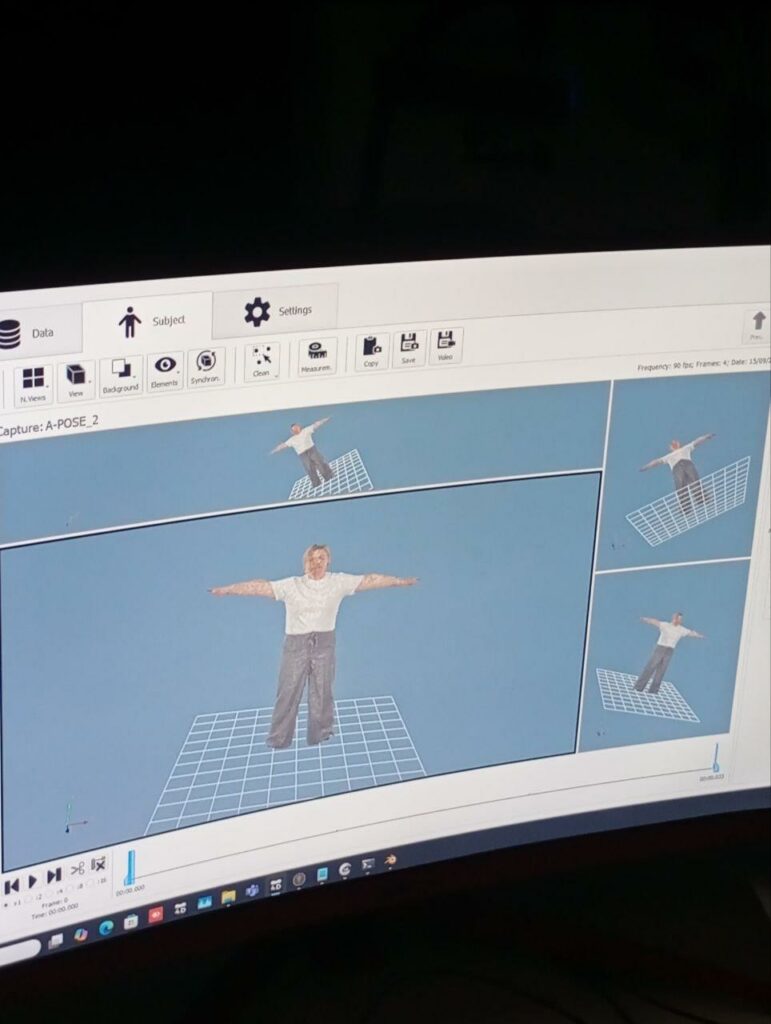
The training programme on the possibilities of 3D printing was extremely interesting, informative, and useful. Dr Hassan Said presented the lecture "3D Printing on Textiles," focusing on the principles and essence of 3D printing processes, and the possibilities and advantages of its application in the textile industry. He showcased samples of products manufactured using various materials and different 3D printing methods. The training participants familiarised themselves with the software for creating and preparing models for printing and tested the capabilities of the 3D printers available in the laboratory.
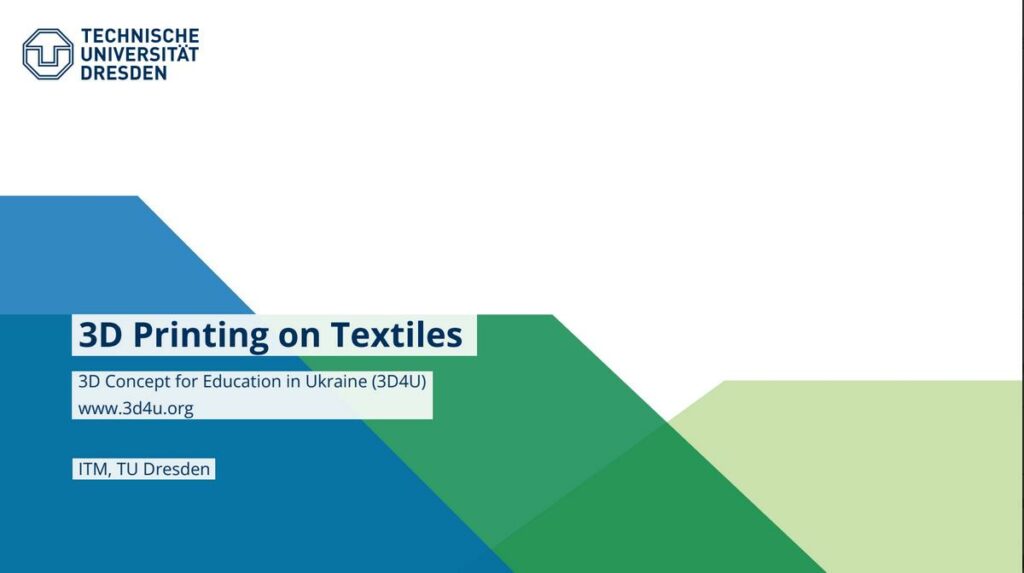
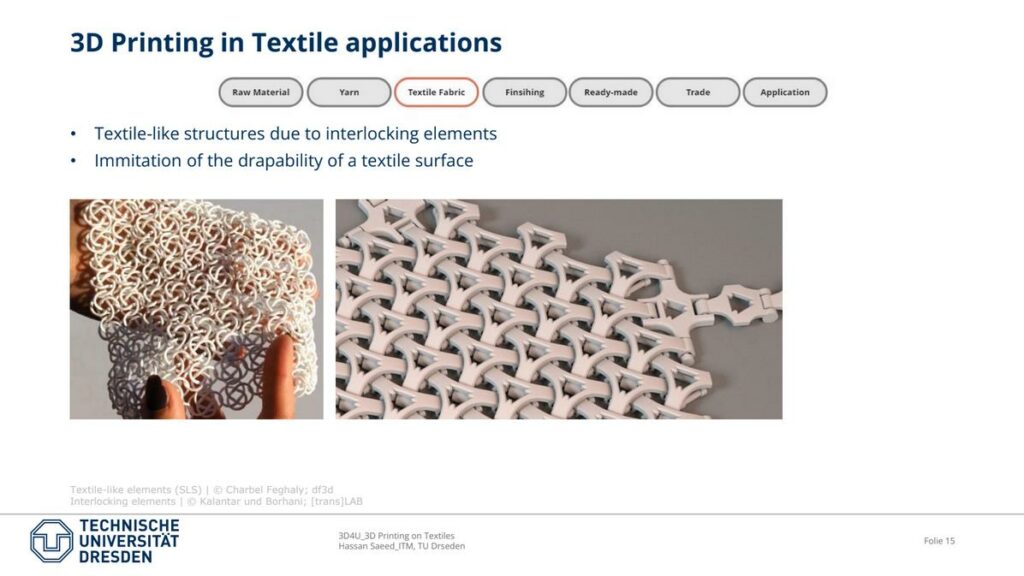
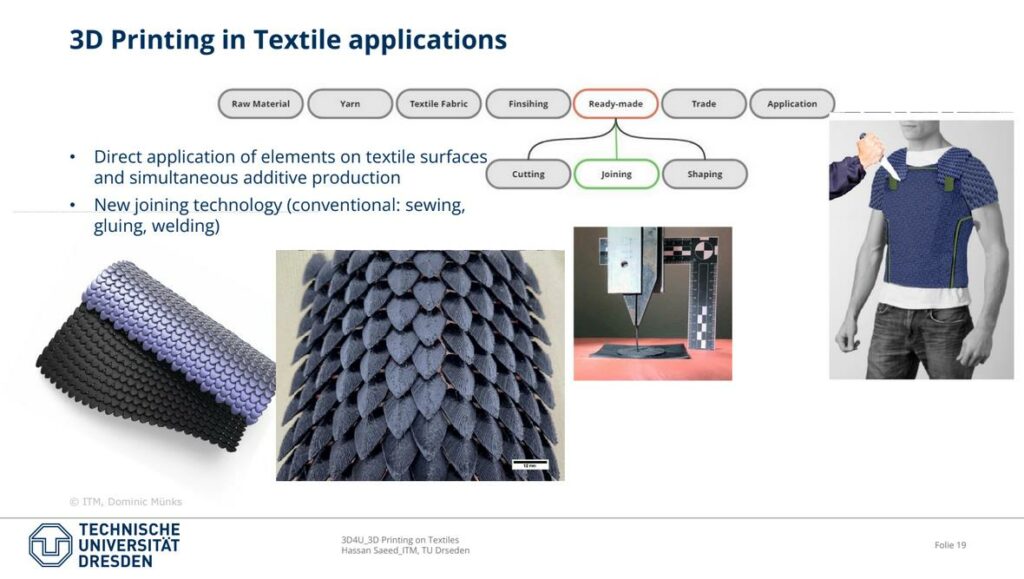
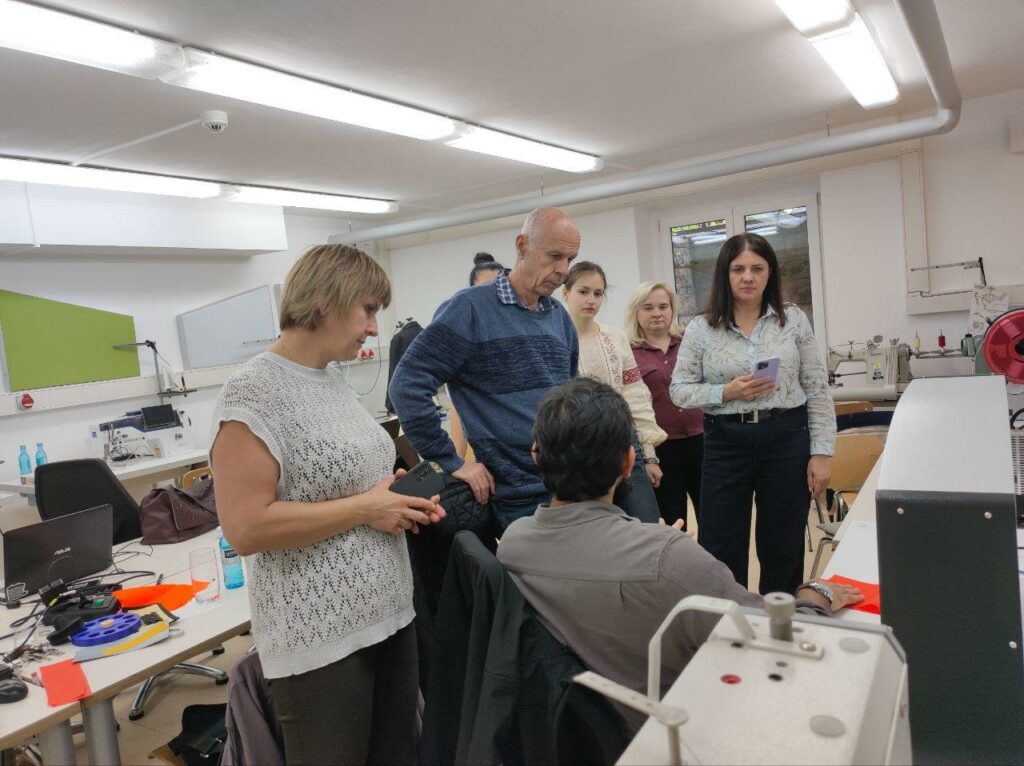
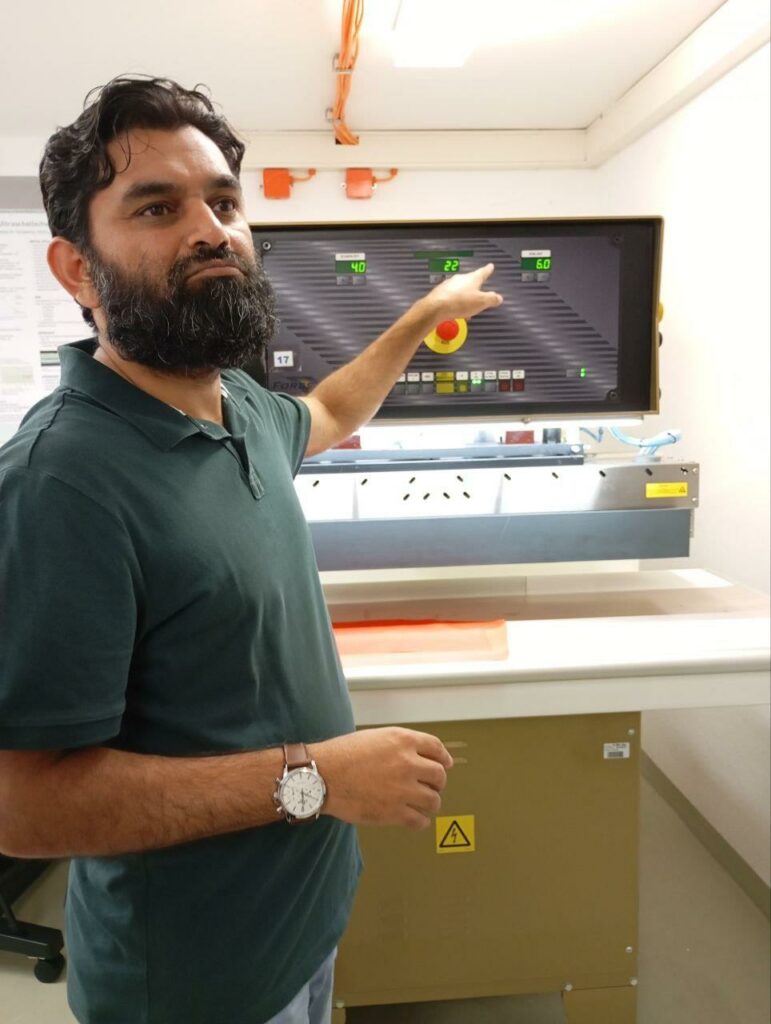
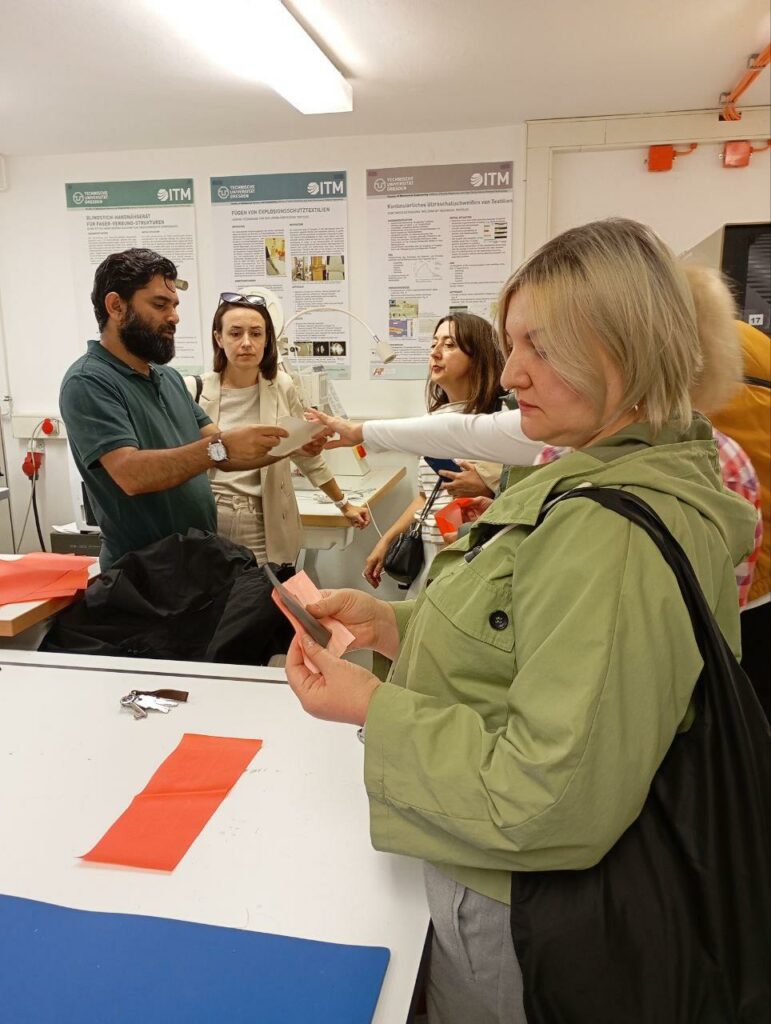
The training participants, the Ukrainian partners of the 3D4U project, successfully enhanced their qualifications and received certificates for the courses: "3D Printing for textiles and fashion" and "Scanning and 3D human modelling."
We are sincerely grateful to our partners at Dresden University of Technology for the inspiring training and warm reception. The knowledge we have gained will motivate us to delve deeper into 3D technologies and implement digital tools into educational programmes, fostering the development of potential and innovation in both education and the design and manufacture of fashion industry products.
And we won’t stop—we continue to work!